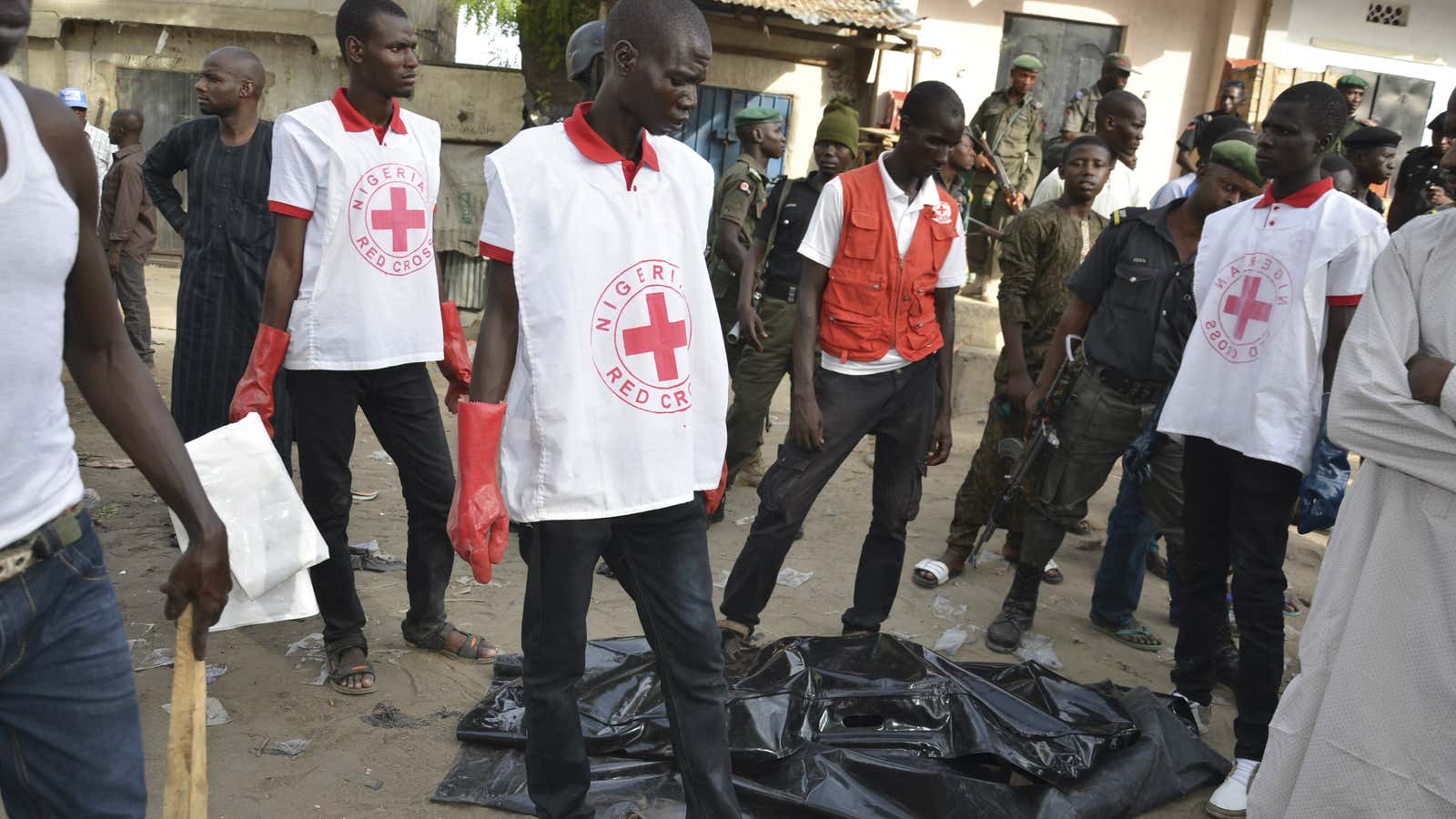Monday, June 29 marked one month since Muhammadu Buhari took office as Nigeria’s president. Attacks by the Islamic terrorist group Boko Haram in the country’s northeast, which had delayed the elections by six weeks, convinced voters that then-president Goodluck Jonathan’s efforts against the group were insufficient and that a change in leadership was necessary.
Buhari’s campaign emphasized his military experience (as a former general) and anti-corruption stance. But so far, while Buhari seems to have forced a change in Boko Haram’s tactics, he does not appear to have significantly reduced its threat.
Buhari’s soaring inaugural rhetoric dismissed previous efforts against Boko Haram as failing due to “official bungling, negligence, complacency or collusion.” Just a few days into his term, he moved the military headquarters from the federal capital Abuja to Maiduguri, the epicenter of the Boko Haram insurgency in Nigeria’s beleaguered northeast. A spokesperson called this “a tactical decision, a consolidation of strategies” that would better enable the military to respond to the insurgency’s attacks.
But according to data collected by the Nigeria Social Violence Project, between April 29th and Buhari’s inauguration, President Goodluck Jonathan’s last month in office, Boko Haram launched 24 attacks claiming 679 lives. Since Buhari was sworn in, there have been 27 attacks with 616 casualties.
Moreover, the Buhari administration has announced only one major victory over the insurgents, in mid-June, when government forces killed “scores” of militants in Yobe State; overall, the death toll among the insurgents is down sharply compared to Jonathan’s last month in office.
There is sometimes discrepancies from the authorities over details on how many insurgents were killed or the number of civilian casualties which can at times make it difficult to assess Nigerian efforts. Adding to the confusion are the geopolitical rivalries at play and the tight-lipped nature of Nigeria’s regional security partners.
Following an attack on N’Djamena, the Chadian military announced that it had conducted retaliatory airstrikes against Boko Haram within Nigeria’s borders. But Chad did not release fatality statistics and Nigeria denied the airstrikes had taken place within its territory.
The insurgency has also seen a tactical shift. In the month before Buhari took office, the insurgents struck urban targets just six out of 24 times; since he took office, 16 of the 27 attacks have been on urban targets.
As a part of this shift away from overrunning territory, the insurgency has been relying more heavily upon suicide bombers. In the month before Buhari, there were six suicide bombers, two of whom were women; under Buhari there have been 13 suicide bombings, 11 of which have been carried out by women or girls, often acting in pairs.
All this suggests that government forces have increased the pressure on the insurgency, and in response it is resorting to urban guerilla tactics. As a result it is also increasingly attacking “soft” targets such as markets and bus depots, putting civilians at higher risk.
When Nigerians went to the polls this March, they sent a strong message that the sort of insecurity in the country’s North East was unacceptable. So far, Buhari is making slow progress, if at all—in delivering what they demanded.
